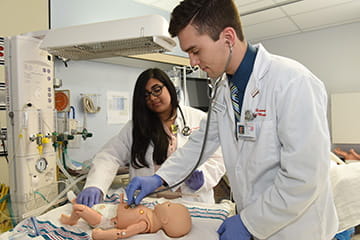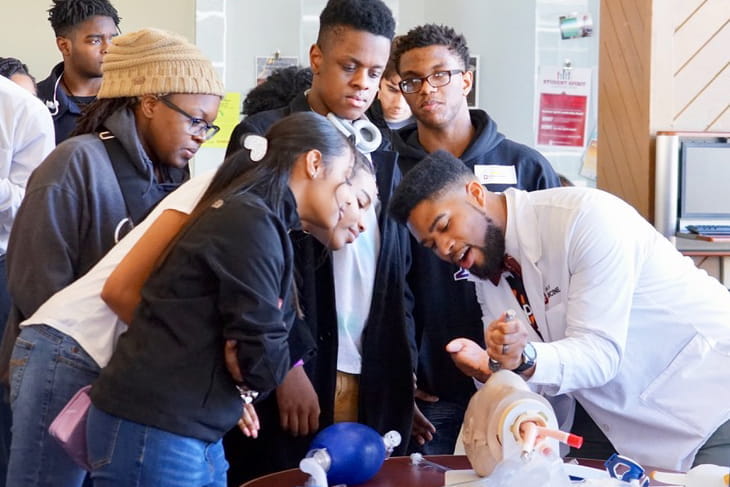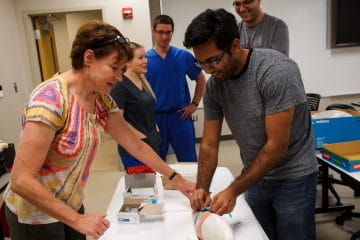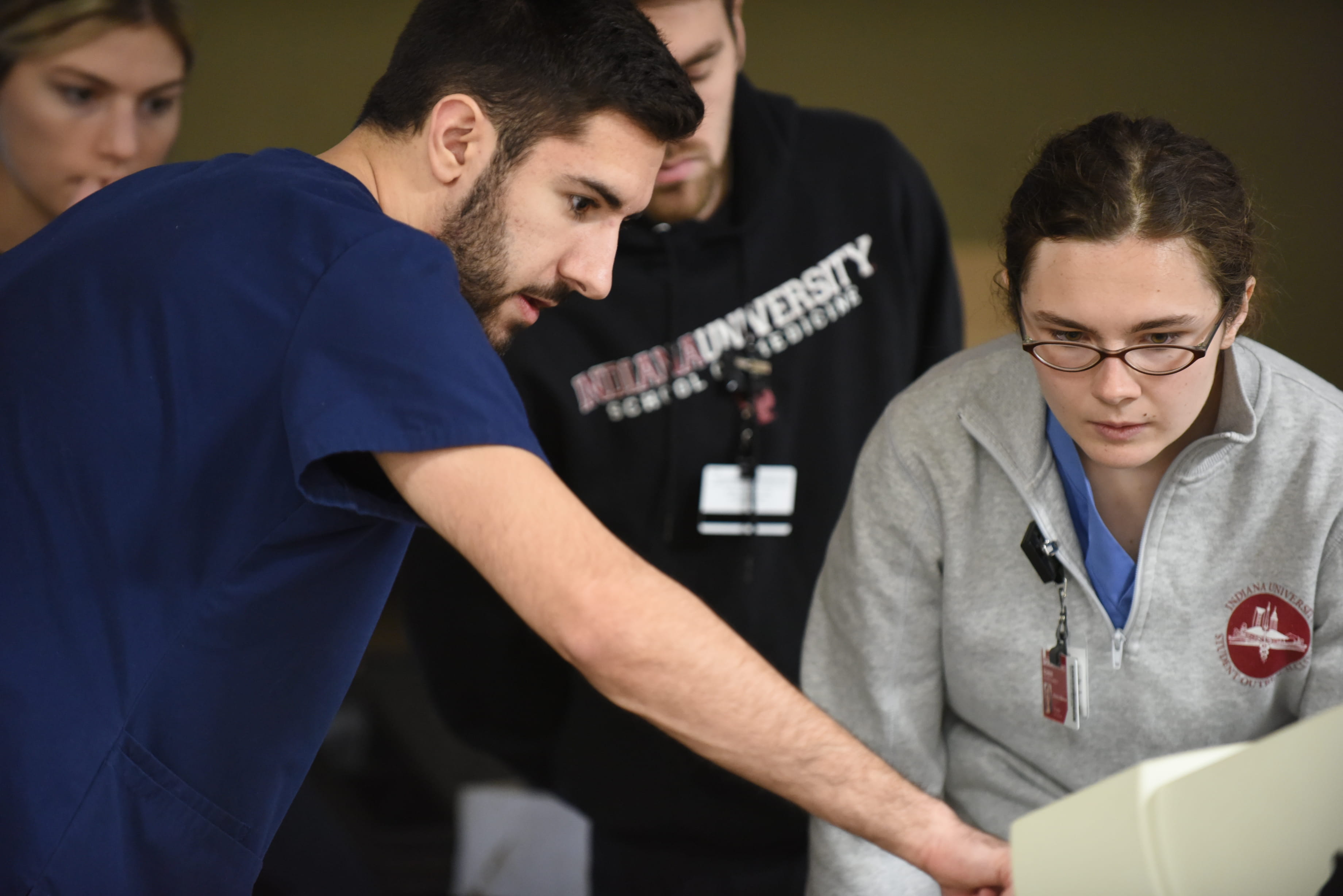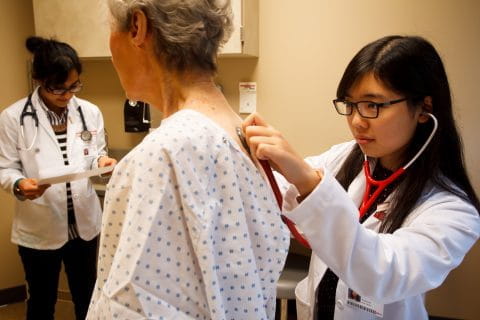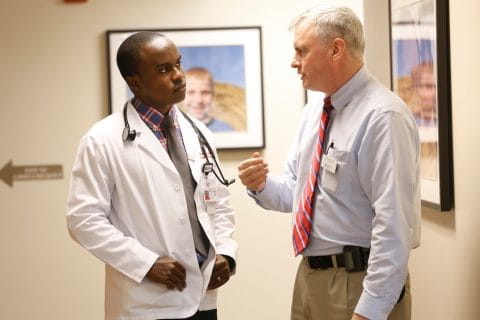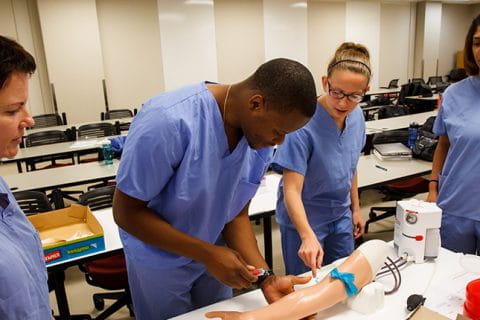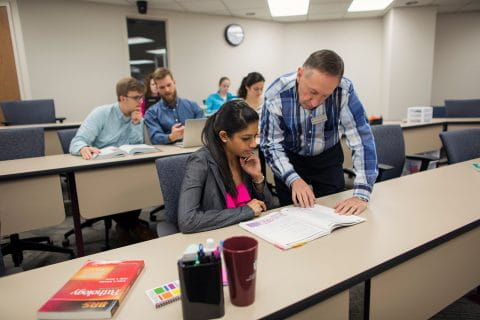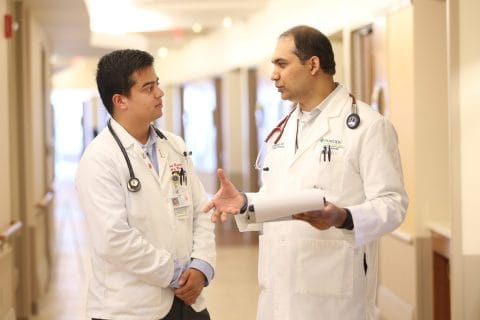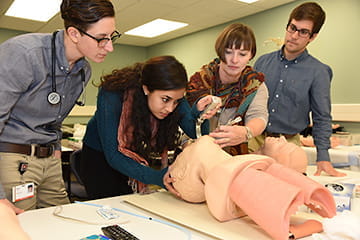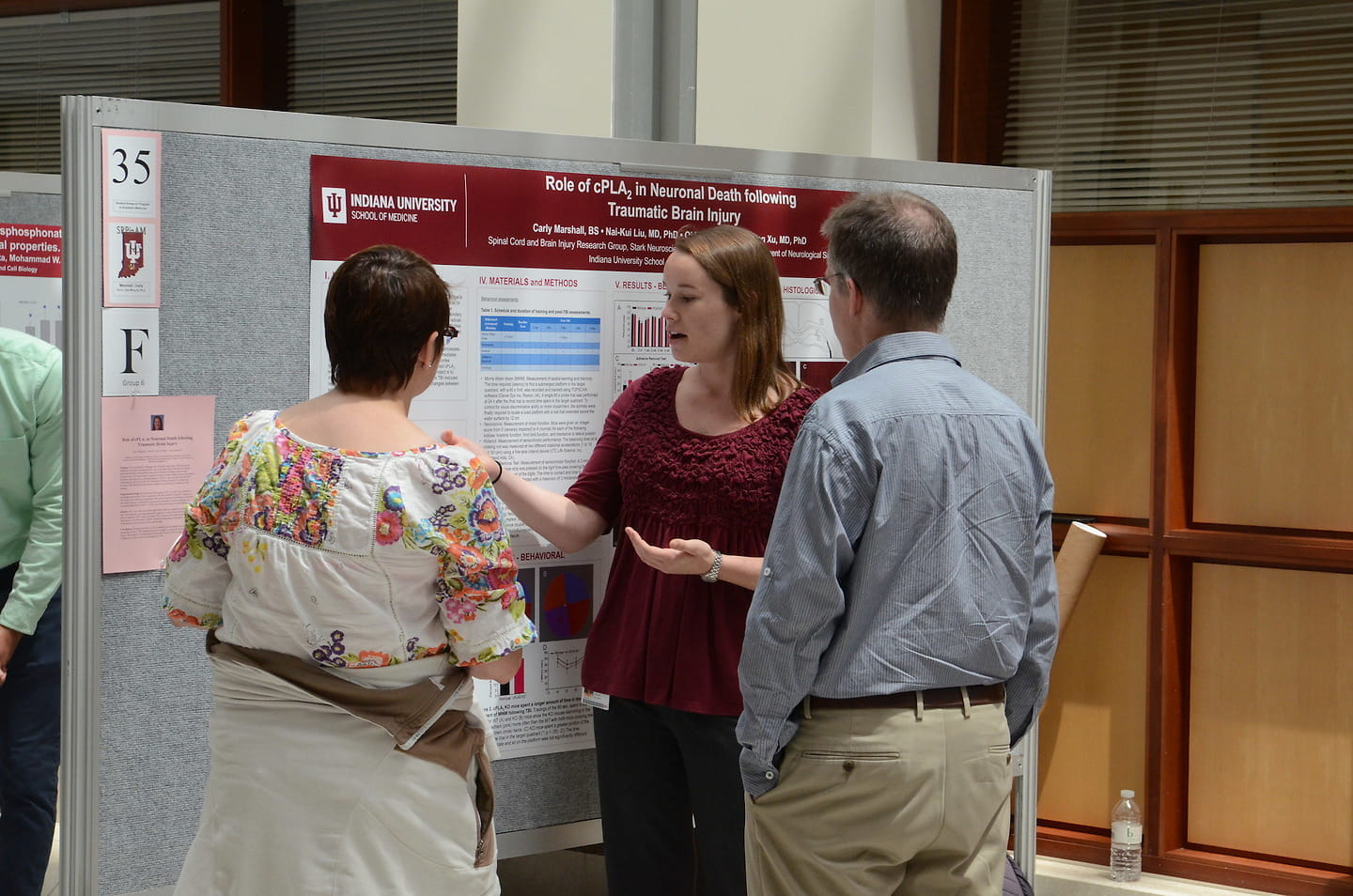Students pursuing a Doctor of Medicine degree at IU School of Medicine progress through a statewide medical education curriculum that includes training in the basic sciences as well as clinical training in tertiary care centers, community hospitals, ambulatory care settings, student-outreach clinics and physician offices. Many students also take advantage of opportunities to participate in a Scholarly Concentration, medical research and campus and community programs.
Given the importance for training to reflect real-world situations and settings of professional practice, IU School of Medicine's MD curriculum reflects and supports changes in care-delivery models, readying students to practice medicine in team-based, interdisciplinary settings. The curriculum closely integrates clinical experiences and basic sciences and offers opportunities for learners to more deeply explore foundational science in a chosen specialty. Collaboration within learning communities and inter-professional work further enhance the training experience.
With the help of student assessments, program evaluations, learning technology, and input from the teaching and learning community at IU School of Medicine, the MD curriculum continues to evolve and improve to meet the ever-changing knowledge needs of successful physicians.
